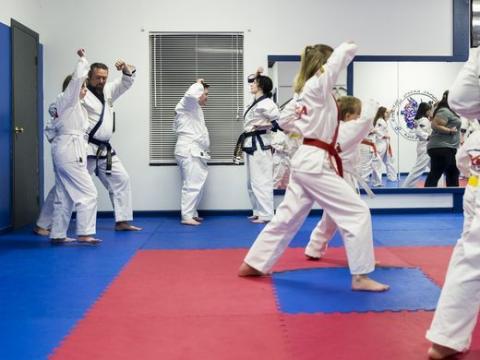
Young people with Down syndrome are prone to a number of health problems, including disturbed sleep, obesity, poor balance and heart disease. Dr. Cory Wernimont and Christie McKinney are primary researchers on the project. Joseph Hornyak is a clinical mentor and a lead investigator, and Dale Ulrich is the principal investigator.
"We believe that participating in a karate program will provide physiological benefits and it is an activity they can maintain around the year," said Wernimont of the University of Michigan.
Unlike competitive team sports such as football or soccer, karate is a bit more individualized. Karate students do train in groups and may compete against each other, but much of the sport is competing against oneself, Wernimont said.
Before starting the training, study participants are tested for physical health in areas such as strength, body mass index, agility and balance. The parents are also given forms to fill out evaluating how often their children experienced emotions such as joy, calmness, peacefulness and feeling refreshed. Participants in the experimental group will receive three months of weekly karate lessons. After the initial evaluation, the participants will be evaluated at the three-month mark and the six-month mark.
All participants are between the ages of 12 and 18 years old. The researchers are paying for the classes for the participants. Participants who are part of the control group will have the choice to receive lessons after the study has concluded or to receive proportionate compensation, Wernimont said.
The researchers chose to partner with PKSA because the organization has a consistent training curriculum across all its locations. This helps the study be more scientific as all the subjects are learning the same things.



